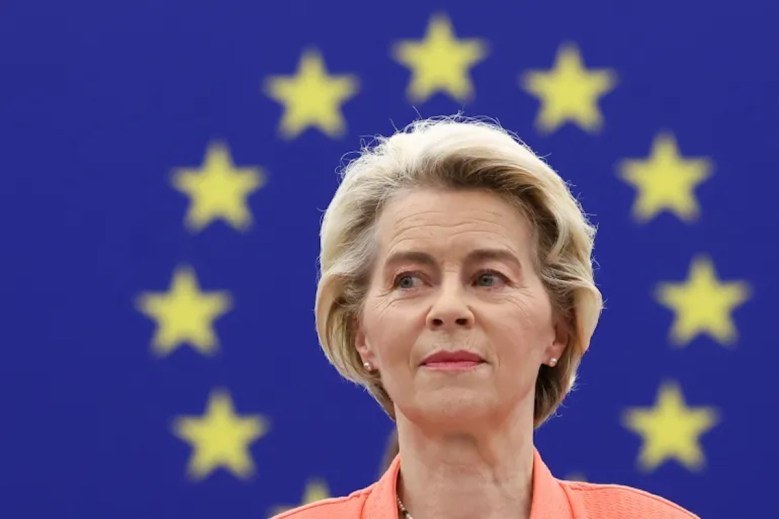Politics
Europe Faces Strategic Challenges Amid Shifting Global Power

Since the onset of Russia’s invasion of Ukraine in 2022, European political dynamics have been significantly shaped by the ongoing conflict. This situation has not only altered the strategic landscape of Europe but has also brought to light the vulnerabilities stemming from an eroding transatlantic security partnership and various dependencies in industries, digital infrastructure, and energy. As Europe grapples with these challenges, it must recalibrate its policies to extend beyond the immediate crisis in Ukraine, while still recognizing the pivotal role the country plays in the broader security context.
The United States has increasingly shifted its focus towards Asia, as highlighted by former President Barack Obama’s “Pivot to Asia” strategy announced in November 2011. This pivot has led to a perception of Europe as a secondary concern for American foreign policy. Without decisive action, Europe risks being sidelined in a future dominated by the US and China. This necessitates a concerted effort to enhance state and regional capacities. Currently, Europe is just beginning to bolster its readiness and resilience, yet significant discrepancies remain.
A stark contrast is evident in the European Union’s (EU) responses to global conflicts. While support for Ukraine has been robust, the EU’s approach to the ongoing crisis in Gaza has been criticized as weak. NATO’s 2022 strategic concept identifies Russia as a primary threat and outlines a general path for Ukraine towards NATO membership, but the lack of formal endorsement from the US leaves these ambitions ambiguous. Divergent responses from EU member states and leadership further complicate the establishment of a unified European stance.
Recent discussions among European leaders, including the President of France and the Chancellor of Germany, advocate for increased defense spending, suggesting a target of 5% of GDP for EU member states. This goal, known as the The Hague pledge, is contingent upon the ongoing conflict in Ukraine. Should the Russian threat diminish or political will to support Kyiv weaken, public support for such high defense expenditure may wane.
According to Mark Rutte, NATO’s Secretary General, non-US NATO allies should aim to deliver 70% of the alliance’s total capabilities by 2032, a significant increase from the current 56%. For nations like Spain, Belgium, Slovakia, and Luxembourg, achieving this target poses substantial challenges due to limited fiscal flexibility compared to larger economies like Germany or those with heightened security concerns, such as Poland and the Baltic states.
Moreover, Europe’s long-term security cannot solely depend on its defense industrial base or financial commitments. Despite efforts like the $170 billion Security Action for Europe (SAFE) initiative and the introduction of the Readiness 2030 white paper, the region’s defense industry may struggle to fully replace crucial US capabilities in air and maritime domains within the next decade.
The fragmentation of Europe’s defense industry remains a significant obstacle. Initiatives like the E3+1, involving France, Germany, the United Kingdom, and Poland, attempt to create regional defense coalitions, but these are temporary measures that lack the cohesion needed for a unified European defense strategy. As the conflict in Ukraine has underscored, effective cooperation, partnerships, and joint development are essential for meeting Europe’s defense production requirements.
Beyond the immediate threats posed by Russia, Europe must also contend with political divisions that contribute to its geopolitical marginalization. The ongoing struggle among EU member states to prioritize collective over national interests hinders progress. Recent crises could potentially catalyze deeper economic and financial integration, leading to a new single market strategy. While this presents challenges, it remains a feasible goal.
To enhance its hard-power capacity and economic independence, Europe must tackle inconsistencies in capital markets, energy, and technology. The international role of the euro could also be expanded to reduce financing costs and attract investments, thereby strengthening Europe’s resilience. In a world increasingly characterized by competition between Beijing and the West, Europe must strategize carefully to engage with both powers without compromising its sovereignty.
Maintaining a balance between managing relations with Russia and engaging in constructive dialogue with China and the US is crucial. A proactive strategy could involve adding a European perspective to existing trade agreements that align with the America First agenda while ensuring that neither power exerts undue influence over Europe’s political landscape.
The capacity to negotiate and compromise will be pivotal as Europe navigates this multipolar world. Achieving economic strength, diplomatic influence, and global reach will be vital, particularly as urgency drives the need for decisive action. As Eric Alter, dean and professor of international law and diplomacy at the Diplomatic Academy in Abu Dhabi, notes, the questions surrounding Europe’s strategic direction in the coming years will be crucial as it strives to enhance its position on the global stage.
-

 World5 months ago
World5 months agoSouth Korea’s Foreign Minister Cho Hyun to Visit China This Week
-

 Business5 months ago
Business5 months agoStarling Bank Plans Secondary Share Sale, Targeting $5.4 Billion Valuation
-

 Top Stories5 months ago
Top Stories5 months agoMunsang College Celebrates 100 Years with Grand Ceremony
-

 World5 months ago
World5 months agoPAS Aims to Expand Parliamentary Influence in Upcoming Election
-

 Business7 months ago
Business7 months agoKenvue Dismisses CEO Thibaut Mongon as Strategic Review Advances
-

 Lifestyle6 months ago
Lifestyle6 months agoHumanism Camp Engages 250 Youths in Summer Fest 2025
-

 Sports6 months ago
Sports6 months agoDe Minaur Triumphs at Washington Open After Thrilling Comeback
-

 Sports7 months ago
Sports7 months agoTupou and Daugunu Join First Nations Squad for Lions Clash
-

 Top Stories7 months ago
Top Stories7 months agoColombian Senator Miguel Uribe Shows Signs of Recovery After Attack
-

 World7 months ago
World7 months agoASEAN Gears Up for Historic Joint Meeting of Foreign and Economic Ministers
-

 Health6 months ago
Health6 months agoNew Study Challenges Assumptions About Aging and Inflammation
-

 Business7 months ago
Business7 months agoOil Prices Surge Following New EU Sanctions on Russia









